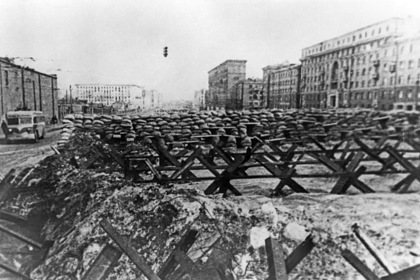Welt: the reason for the defeat of the Wehrmacht near Moscow was the rains and problems with ammunition 
Operation Typhoon, during which the Nazi invaders were supposed to enter Moscow, ended in defeat due to rains and problems with logistics. The journalist Florian Stark wrote about this in his article for the German edition of Die Welt.
According to him, the advance of the Germans, who “never came to Moscow,” gripped by “chaos” was delayed by a shortage of fuel and ammunition. Shtark also noted that at the same time, the rains began, which turned local roads into mud rivers a meter deep.
Previously, head of the branch “Bogoroditskoye Pole” Detachment “Duty” Igor Mikhailov spoke about the main mistakes of the German soldiers in the battle for Moscow. According to him, the German military leaders overestimated their capabilities against the backdrop of a successful start of the offensive. After the Vyazemsky and Bryansk boilers, the Nazis dispersed the main forces. Thus, the commander of Army Group Center, Fedor von Bock, struck at Torzhok north of Kalinin (now Tver). Unsuccessful attempts to attack in this direction were suspended on October 23.
On September 30, 1941, Operation Typhoon began. The troops of the 2nd Panzer Group of General Heinz Guderian attacked the positions of the Bryansk Front, and on October 2, Army Group Center struck the troops of the Western and Reserve Fronts. The Battle of Moscow, which was attended by over three million people, became the largest strategic battle of the Second World War.